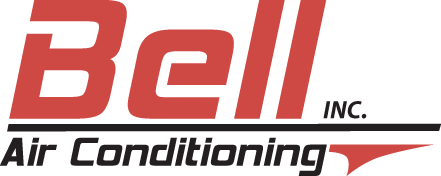
If you’re shopping for an air purifier, you might be finding that some manufacturers are spouting many claims. And many of those claims might feel too good to be true. So, it’s only natural that you may be thinking are air purifiers a waste of money.
They’re worth it, according to the EPA, since they’re an excellent way to enhance your Temple/Belton house’s indoor air quality. Modern residences are tightly sealed and thoroughly insulated, which is good for energy efficiency, but not so excellent for indoor air quality.
Since modern residences don’t typically bring in as much outside air as aging houses, pollutants like dust, pet dander and cleaning products can concentrate in your home. The outcome? Air that’s more polluted than the outdoors, which is a problem if you have allergies, asthma or are susceptible to respiratory irritation.
Our indoor air quality specialists at Bell Air Conditioning Inc can help you cut through the clutter and select the best home air purifier. Just contact us at 254-307-9572 and we’ll be happy to assist you. For now, discover more about how air purifiers work, their pluses and our recommendations to help you find the right air purifier.
How Does an Air Purification System Work?
Most home air purifiers rely on a fan to pull in air. Then, the air moves through one or more filters to trap pollutants before being redistributed.
These filters may incorporate a charcoal filter, to remove odors, and a HEPA, or high efficiency particulate air, filter. A HEPA filter is at least 99.7% effective at catching miniscule particles as small as .3 microns, like dust, pollen, mold and some bacteria.
An air purifier can be movable and used to treat an individual area. Or they can be added to your HVAC system, giving strong filtration for your total house.
The EPA says it’s important to know that air purifiers can’t eliminate 100% of the contaminants from your house’s air. But when used in combination with an enhanced filter for your HVAC system, they can greatly lower the concentration of indoor air pollution.
4 Perks of an Air Purifier
Adding an air purifier to your house can offer lots of good health pluses. Here are just a couple of them.
1. Decreases Allergy and Asthma Triggers
Air purifiers reduce contaminants in your residence, including some of these common triggers:
- Dust
- Pollen
- Mold
- Volatile organic compounds, including cleaners, air fresheners and personal care products
2. Lowers Other Symptoms Linked to Poor Indoor Air Quality
Even if you or someone in your home doesn’t struggle with allergies or asthma, an air purifier can alleviate other troubles related to low indoor air quality. These entail:
- Itchy throat, eyes, nose or skin
- Headaches
- Sneezing and coughing
- Fatigue
- Dizziness
- Nausea
It can be tricky to determine troubles linked to indoor air quality, because they can be caused by lots of other illnesses. However, if you’re observing that you feel better after you leave your residence, your indoor air quality is probably causing trouble.
3. Gets Rid of Odors
Persistent odors, like cigarette smoke or cooking smells, can be difficult to eliminate. If you having problems with eliminating heavy smells in your home, we recommend purchasing an air purifier with a charcoal or activated carbon filter.
4. Can Decrease Your Likelihood of Being Sick
An air purifier can inactivate some bacteria and viruses under certain airflow conditions, keeping you and your household in good health especially during winter months. To take complete advantage of this benefit, our pros recommend a UV air purifier. Disinfecting ultraviolet light delivers an additional layer of protection against airborne pathogens.
Air Purifiers to Skip
You’re better off without certain air purifiers. Here are a couple of styles to avoid when choosing a system for your residence:
- Makes ozone. Some air purifiers produce ozone, which can bother your lungs. The EPA suggests skipping ozone air purifiers.
- Doesn’t have HEPA filters. For the best outcome, you’ll want a HEPA air purifier. Known as the gold standard for clean air, HEPA filters are used in the majority of healthcare settings, such as hospitals.
- Only purifies an individual room. We suggest using a whole-house air purifier, which filters the air in every room. This style runs in tandem with your heating and cooling system.
When you work with the indoor air quality specialists at Bell Air Conditioning Inc, we make it easy to buy the best air purifier for your house. Contact us at 254-307-9572 to start breathing cleaner air today!
